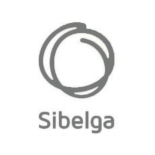
The similarities and dangers of AI and George Orwell's "1984" are striking and offer a cautionary tale about the potential future of technology and surveillance. Orwell's dystopian novel, written in 1949, envisions a society under constant surveillance by a totalitarian regime, where independent thought is suppressed, and the government controls information and history. As AI technology rapidly advances, concerns about privacy, control, and autonomy echo the themes of "1984."
Similarities
Surveillance: In "1984," the omnipresent government surveillance through telescreens and the Thought Police is a central theme. Similarly, AI has enabled unprecedented levels of surveillance. From facial recognition systems to internet monitoring, AI technologies can track and analyze individuals' movements and behaviors on a massive scale. Manipulation of Information: Orwell's regime controls and manipulates information to maintain power, rewriting history and spreading propaganda. AI algorithms today can influence public opinion by curating content on social media, creating echo chambers, and even generating deepfakes—realistic fake videos that can spread misinformation. Loss of Privacy: The citizens of Orwell's world have no privacy, as the government monitors their every move. AI's capabilities in data collection and analysis pose a similar threat to personal privacy. With smart devices, online tracking, and data breaches, individuals' private lives are increasingly exposed to corporations and governments.
Dangers
Authoritarian Control: One of the most significant dangers of AI is its potential use by authoritarian regimes to enhance control over populations. AI can be employed to monitor dissidents, suppress free speech, and enforce compliance, much like the Thought Police in "1984."
Erosion of Trust: AI's ability to create convincing fake content can erode trust in information. Deepfakes and AI-generated misinformation can make it difficult to discern truth from falsehood, leading to a society where people are skeptical of all information—a scenario reminiscent of the manipulated reality in "1984."
Autonomy and Free Will: AI systems that predict and influence human behavior can undermine autonomy and free will. In "1984," the regime's control over thoughts and actions strips citizens of their independence. Similarly, AI-driven nudges and recommendations can subtly manipulate choices, raising ethical concerns about human agency.
Inequality and Power Imbalances: The concentration of AI technology and expertise in the hands of a few can create significant power imbalances. In "1984," power is held by the Party elite, while the masses remain oppressed. Today, tech giants and governments with access to advanced AI can wield disproportionate influence, potentially exacerbating social and economic inequalities.
Conclusion
The parallels between AI and Orwell's "1984" serve as a warning about the potential dangers of unchecked technological advancement. While AI has the power to improve lives and solve complex problems, it also poses significant risks to privacy, autonomy, and democracy. As we continue to develop and deploy AI technologies, it is crucial to establish ethical guidelines, regulations, and safeguards to prevent the dystopian future Orwell envisioned from becoming a reality.
Hope for the Future
Despite the potential dangers, advancements in AI also bring significant opportunities for positive change and hope for a better future. Responsible development and ethical implementation of AI can lead to numerous benefits that enhance our lives and society.
- Medical Advancements
- Environmental Protection.
- Education and Learning
- Improved Efficiency and Productivity
- Enhanced Accessibility
The future of AI holds great promise if we navigate its development with caution and foresight. By fostering collaboration between governments, industry, and civil society, we can create policies and standards that promote the ethical use of AI. Investing in AI education and literacy will empower individuals to understand and critically engage with AI technologies.
Furthermore, international cooperation can ensure that AI benefits are distributed equitably across the globe, reducing the risk of exacerbating existing inequalities. Open-source AI initiatives and global research collaborations can democratize access to AI advancements, enabling all countries to participate in and benefit from the AI revolution.
In conclusion, while there are significant challenges associated with AI, there are also tremendous opportunities for positive impact. By prioritizing ethical considerations, inclusivity, and global cooperation, we can harness the power of AI to create a future that aligns with our highest ideals, avoiding the dystopian scenarios reminiscent of Orwell's "1984" and instead fostering a world of innovation, equity, and hope.















